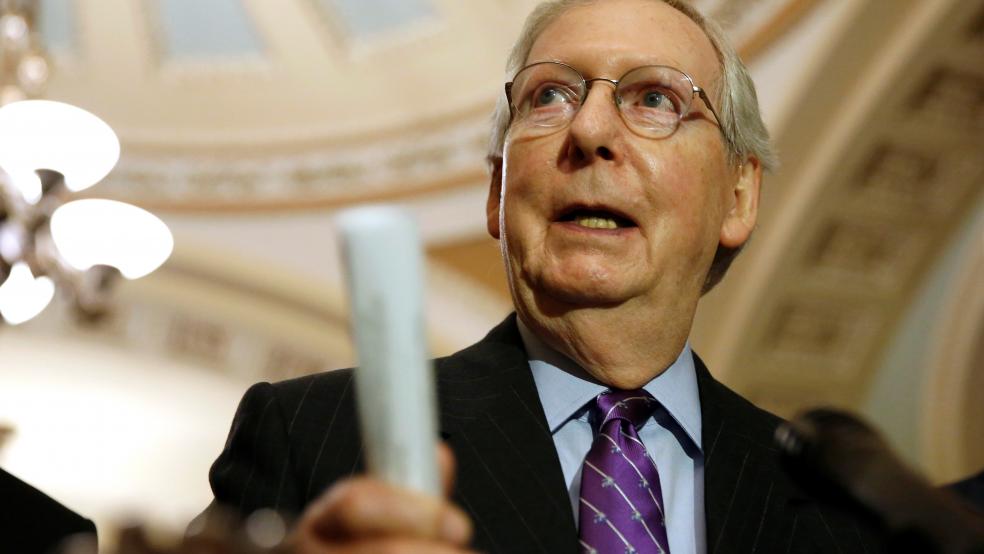The Senate passed an additional $484 billion in emergency coronavirus aid on Tuesday, replenishing a loan program for small businesses that ran dry last week and providing more funding for hospitals and testing.
The deal is the fourth congressional effort to address the pandemic and would bring total coronavirus relief spending to nearly $3 trillion. The package includes:
- $321 billion in additional funding for the Paycheck Protection Program targeted at small businesses, including $30 billion reserved for community-based lenders, small banks and credit unions and $30 billion for mid-sized banks and credit unions. The PPP funding also includes $11 billion more for administrative costs;
- $60 billion more for the Economic Injury Disaster program for small businesses, including $50 billion for loans and $10 billion for grants;
- $75 billion for hospitals;
- $25 billion for testing and contact tracing, including $11 billion to be distributed to states as well as $1 billion for the Centers for Disease Control and Prevention, $1.8 billion for the National Institutes of Health, $1 billion for the Biomedical Advanced Research and Development Authority, $1 billion for testing the uninsured and $825 million for community and rural health centers;
- $2.1 billion for Small Business Administration administrative expenses.
The deal came after some two weeks of partisan impasse, after Democrats refused to pass additional funding for small businesses without more aid for hospitals, testing, states and local governments. In the end, the White House and congressional Republicans agreed to provide more money for hospitals and testing but not for state and local governments.
The bill reportedly also requires the Trump administration to establish a national strategic testing plan within 30 days. Democrats had been pushing for a national approach to testing, while Republicans and the White House said the responsibility for testing should be on states and the private sector. “The final agreement seems to strike a balance,” The Washington Post reports, “requiring plans from states and localities on how they will utilize the testing funds, and also requiring a strategic plan on providing assistance to states for increasing testing and testing capacity.”
On Tuesday, leaders of both parties hailed the deal and claimed it as a victory for their priorities.
- Senate Majority Leader Mitch McConnell: “I am encouraged that Democratic leaders have finally agreed to reopen the Paycheck Protection Program and abandon a number of their unrelated demands. … In the week-plus while our Democratic colleagues delayed the urgent PPP funds, additional federal help for hospitals and healthcare providers became urgent as well. Republicans have always supported more medical funding as soon as necessary and I am proud this package will provide roughly $75 billion more to fund hospitals and healthcare providers in this crisis.”
- House Speaker Nancy Pelosi and Senate Minority Leader Chuck Schumer: “Democrats flipped this emergency package from an insufficient Republican plan that left behind hospitals and health and frontline workers and did nothing to aid the survival of the most vulnerable small businesses on Main Street.”
- House Majority Leader Steny Hoyer, per Politico, told reporters Tuesday: "When you look at the package that’s going to be passed, it’s almost exactly like the one we asked for two weeks ago. We're ending up with a bill we could've passed 12 days ago."
What’s next: The House could approve the legislation as soon as Thursday in a vote requiring at least 216 members to return to the Capitol. In a pair of tweets Tuesday afternoon, President Trump urged the House and Senate to pass the legislation and said that, after he signs it, discussions would begin on the next phase of relief, which he said would include aid “to State/Local Governments for lost revenues from COVID 19, much needed Infrastructure Investments for Bridges, Tunnels, Broadband, Tax Incentives for Restaurants, Entertainment, Sports, and Payroll Tax Cuts to increase Economic Growth.” But McConnell reportedly said the next phase wouldn’t come until the Senate is back in session, and that the growing national debt resulting from coronavirus relief efforts is "a matter of genuine concern."
Too little, too late? Even before the additional Paycheck Protection Program funding has passed, there are already concerns that it won’t be enough. “Lenders are warning their customers they might not be able to secure loans even if Congress provides an additional $300 billion as soon as this week,” Politico’s Zachary Warmbrodt reported Monday. “Banking industry representatives say the program has a burn rate of $50 billion per day and needs closer to $1 trillion to meet demand, with hundreds of thousands of applications pending.”





